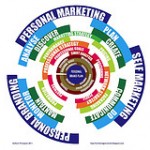 So how can we cheer you up in the chaos before the Christmas holidays? Read on about the art of networking!
So how can we cheer you up in the chaos before the Christmas holidays? Read on about the art of networking!
Networking: What is it?
Often when we mention the term networking a look of horror creeps across our client’s faces. They imagine selling, cold calling and all that embarrassing awkwardness of being rejected. Stop there! Think of networking as building relationships, about listening, asking questions, being interested, building trust and rapport. This comes more naturally for some, than for others, in true emotional intelligence terms; but it can be learned like any skill.
Why bother?
Networking can help you in the following ways:
- Creating opportunity for a new job now or in the future
- Finding new clients/customers/prospects
- Trading specialist knowledge in your profession, industry or sector
Let’s look at these individually. This time:
Networking for a new job
Research from Henley Business School identified that people were promoted based on 3 key factors: 10% on their technical competence & skill, 30% on their image and 60% on their exposure to the right people…in other words on their ability to network.
So how can you afford not to develop this skill set? It is widely claimed that up to 70% of jobs are secured through networking. So, as a process to find work, networking is more significant than on-line recruitment ads, agencies, media ads etc. Again, how can you afford not to use this process?
A career networking conversation focuses on asking for advice, tips and information in an organisation, profession or industry. Other benefits are soliciting feedback on career goals, finding support for career development, gathering referrals to others who could be helpful and generating and uncovering future possibilities and options.
Whether you are looking for a new job or not, creating a networking plan is a valuable investment of time. It’s easier in the long run if you don’t leave long gaps in talking with people and then appear to only get in touch when you want something.
Getting started
If every person knows about 200 other people, how can you tap into that pool? Think of this pool as contacts. Divide the contacts into 3 groups. Acquaintances, allies, & advocates.
Acquaintances are friends, neighbours, customers, colleagues with whom you have had minimal interaction. They know you by name and if you requested will probably do a small favour.
Allies are those who know your talents and aspirations. They will go the extra mile to give you names, resources, feedback etc. You respect the advice they give you. They know your expertise and you know theirs.
Advocates know you really, really well and believe in you. They trust you and your reputation and are very willing to speak on your behalf. You are equally supportive of them.
Prioritise your contacts under the 3 headings based on the likely help you can give them and vice versa. Plan regular calls/ emails to stay in touch. Remember small details about them to kick the conversation off. If you have been made redundant, planning a certain number of networking calls is highly effective. If you do feel awkward think how you would feel if someone asked for your advice, you would probably be flattered.
Next time, more tips on networking for:
- Finding new clients/customers/prospects
- Trading specialist knowledge in your profession, industry or sector
If you found this useful, please mention us on Twitter.
 Customers are demanding more; they want the promise of value that you offer.
Customers are demanding more; they want the promise of value that you offer.

 You may think that Personal Branding has nothing to do with you but read on and consider whether you can afford to ignore it!
You may think that Personal Branding has nothing to do with you but read on and consider whether you can afford to ignore it!
 It is a busy time of year so I decided to write a brief post and send my best wishes for a peaceful, healthy and prosperous New Year!
It is a busy time of year so I decided to write a brief post and send my best wishes for a peaceful, healthy and prosperous New Year!
 So how can we cheer you up in the chaos before the Christmas holidays? Read on about the art of networking!
So how can we cheer you up in the chaos before the Christmas holidays? Read on about the art of networking! The phrase ‘hurry sickness‘ is now in common use.
The phrase ‘hurry sickness‘ is now in common use.
 Finding more time in the day and getting organised are some of the key issues for many of our clients. This post builds on
Finding more time in the day and getting organised are some of the key issues for many of our clients. This post builds on 